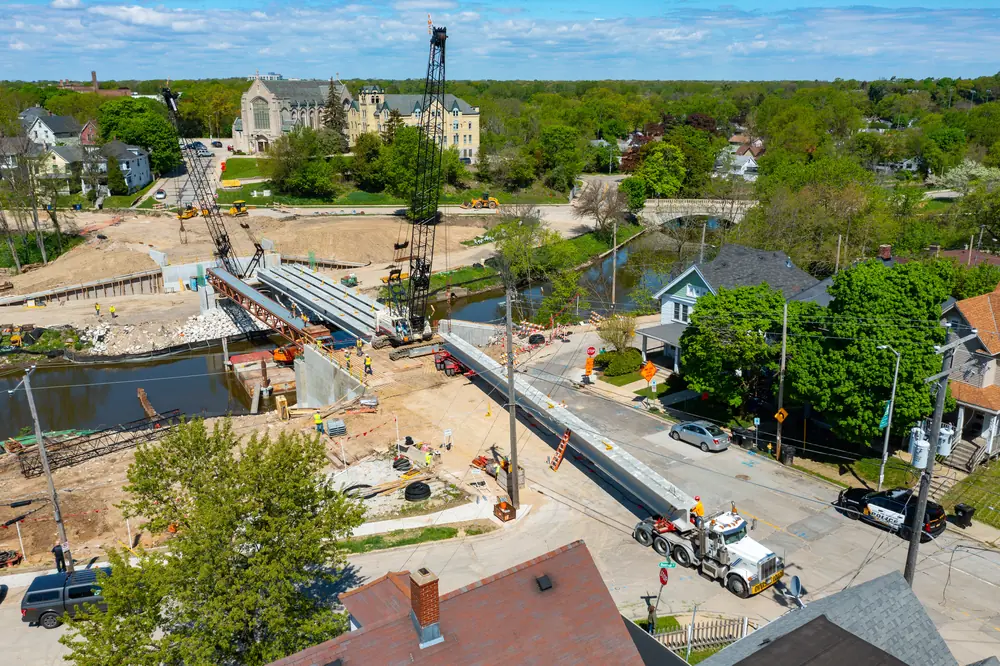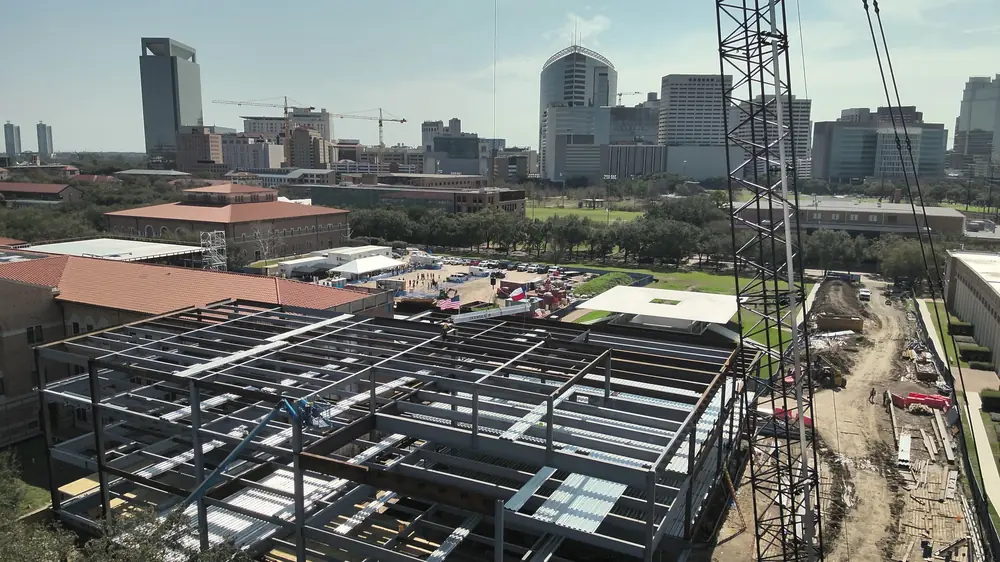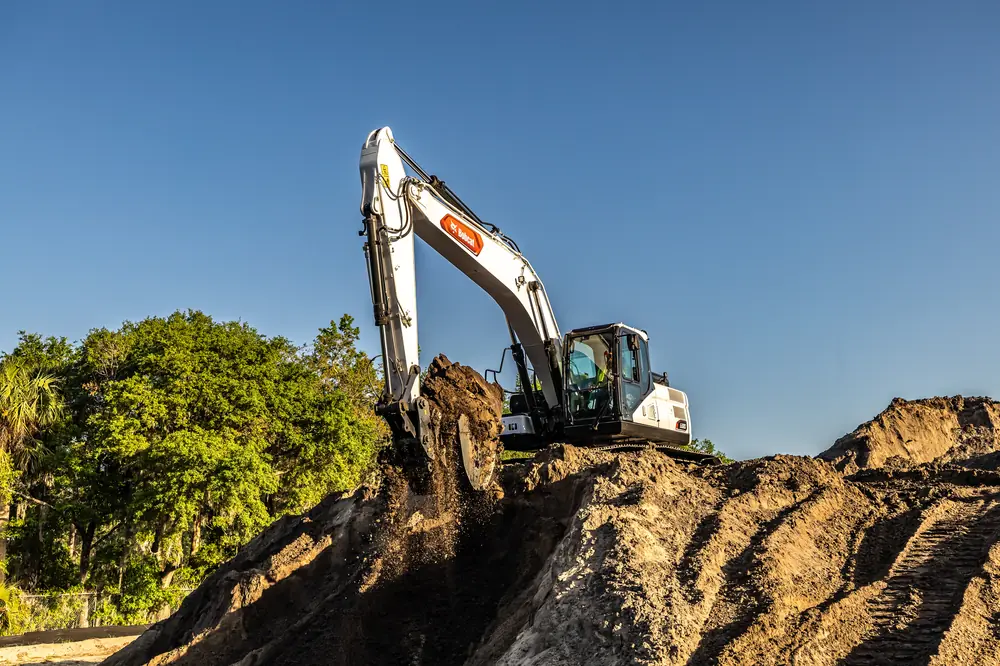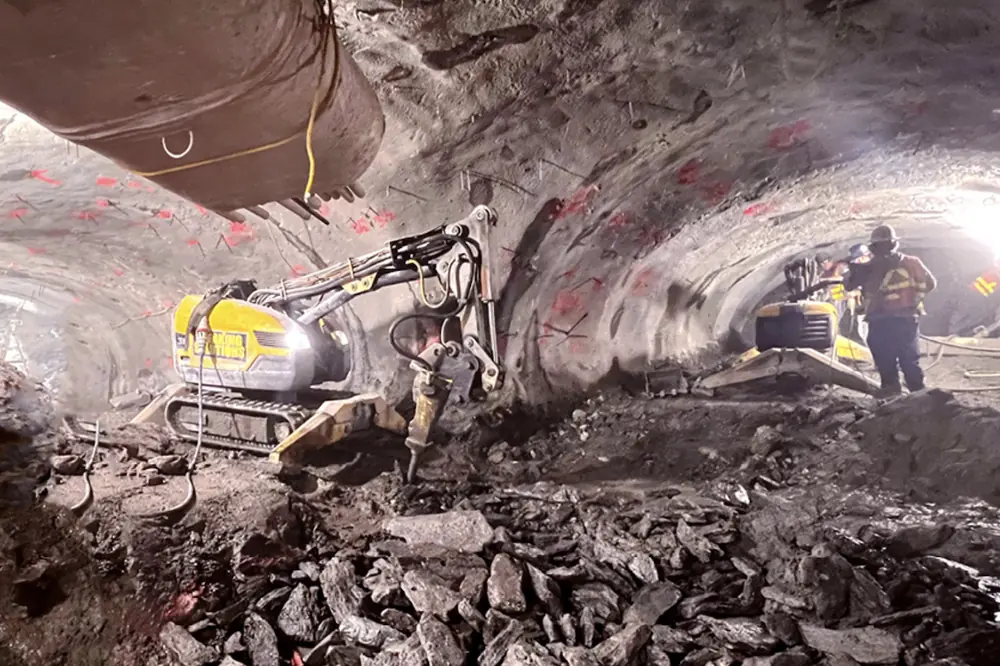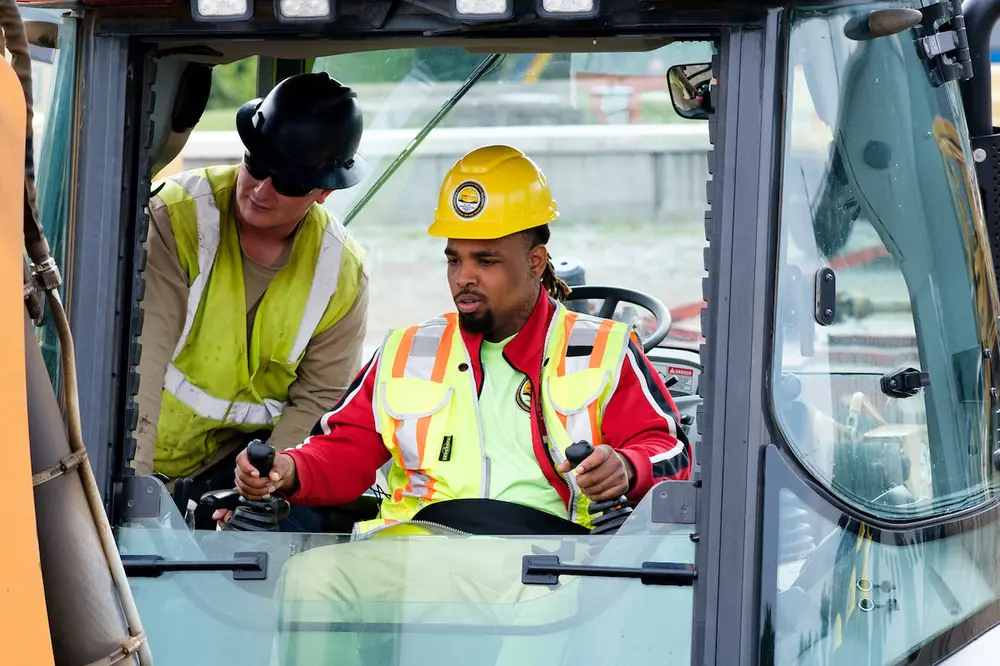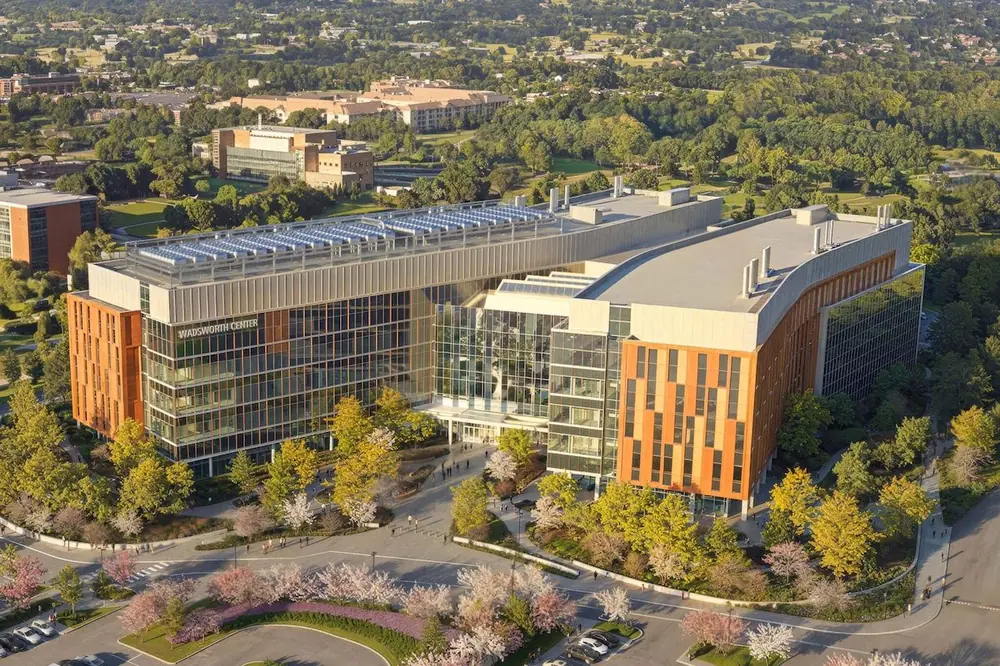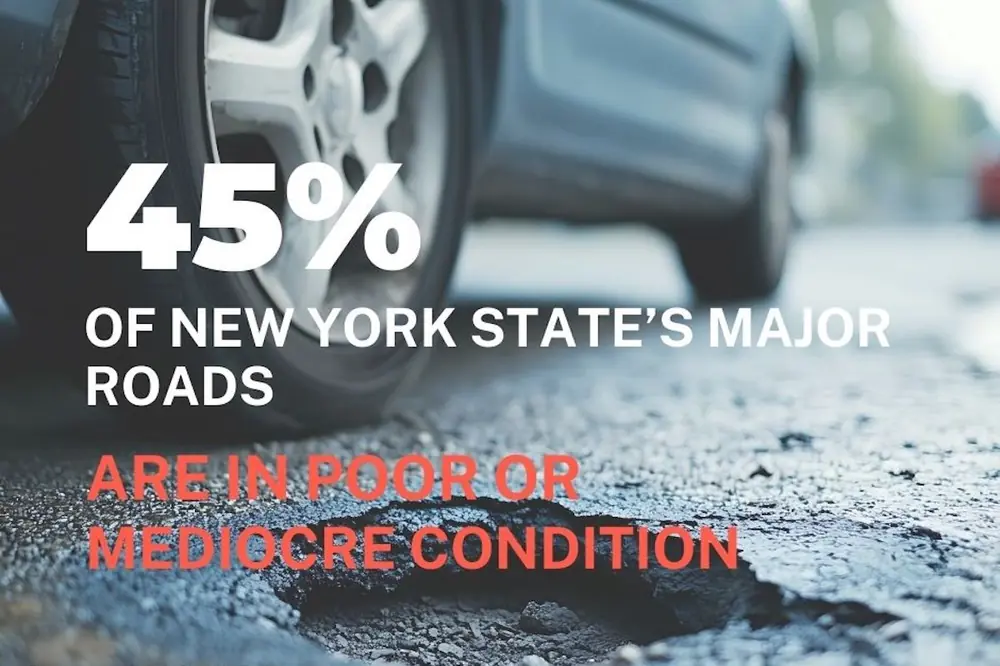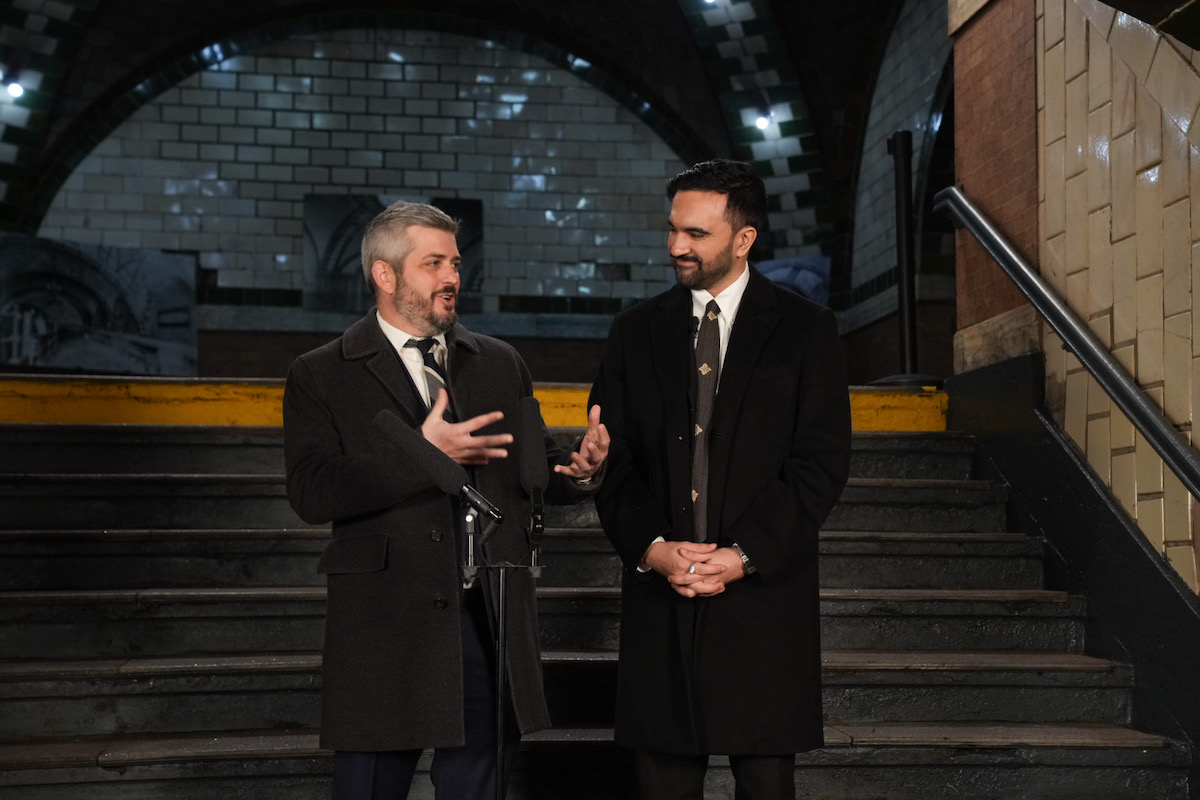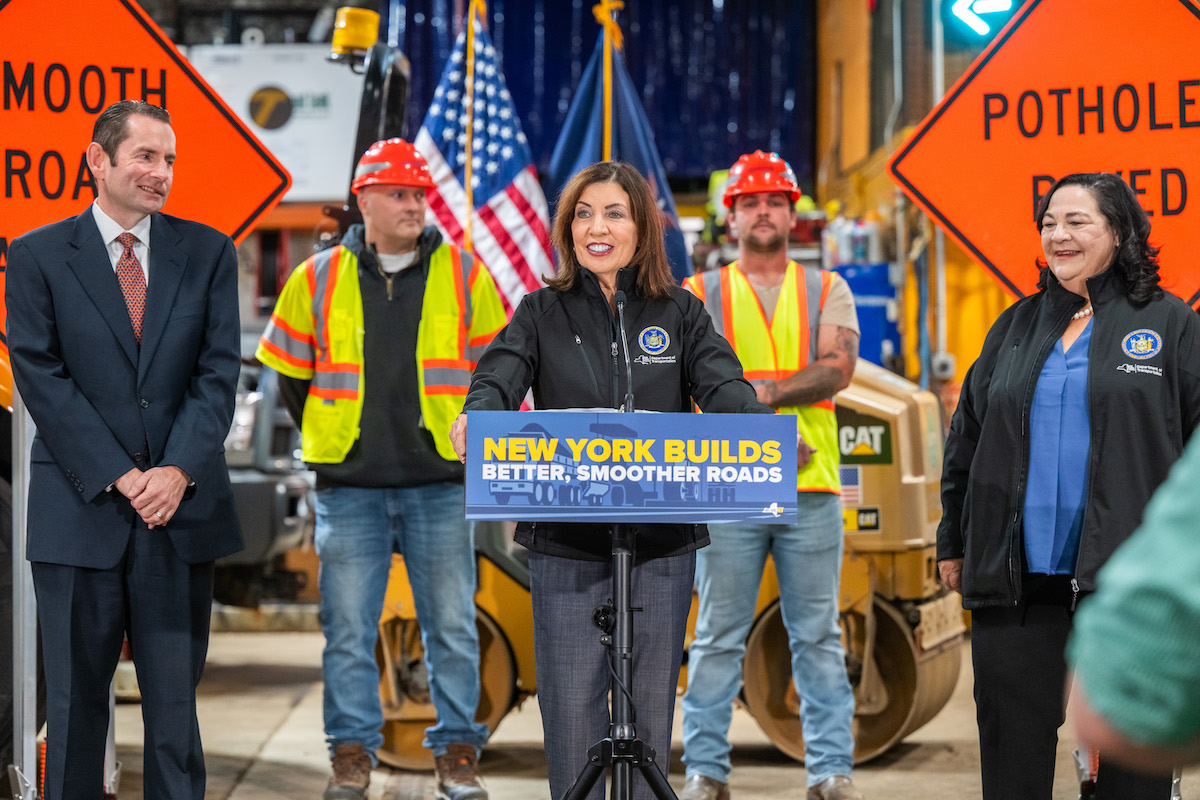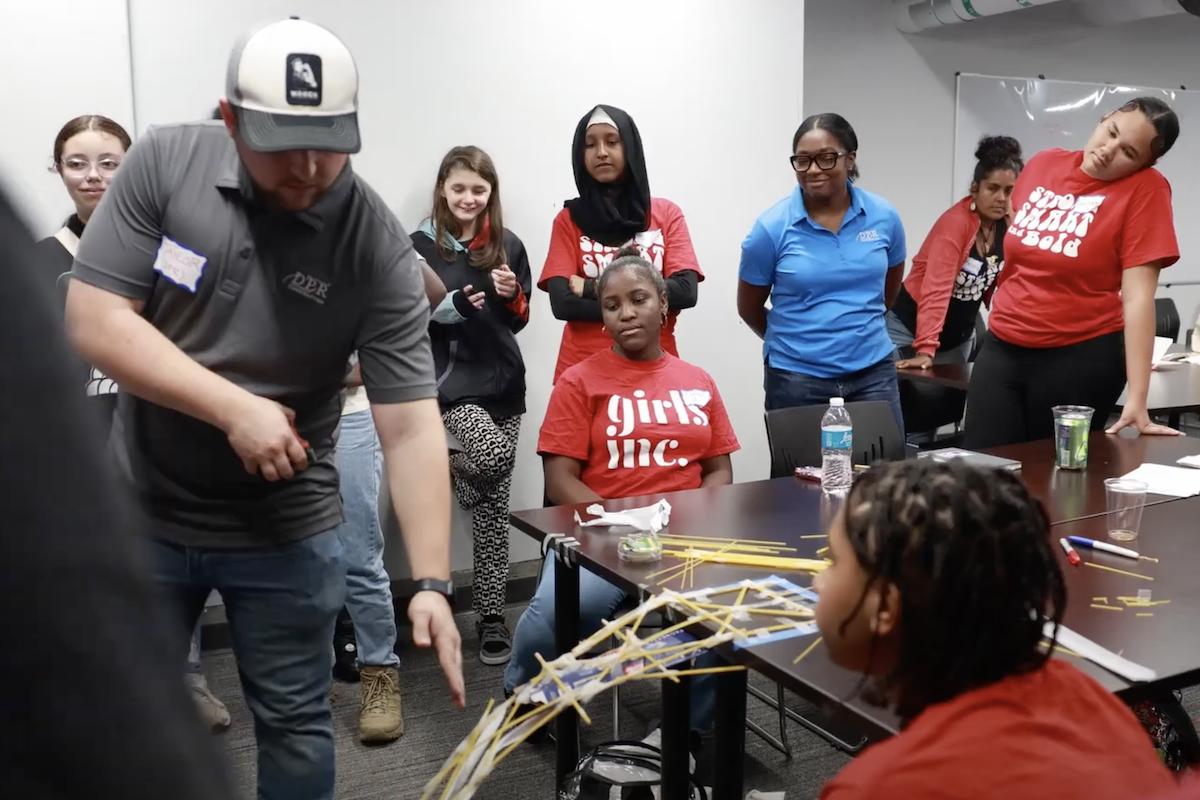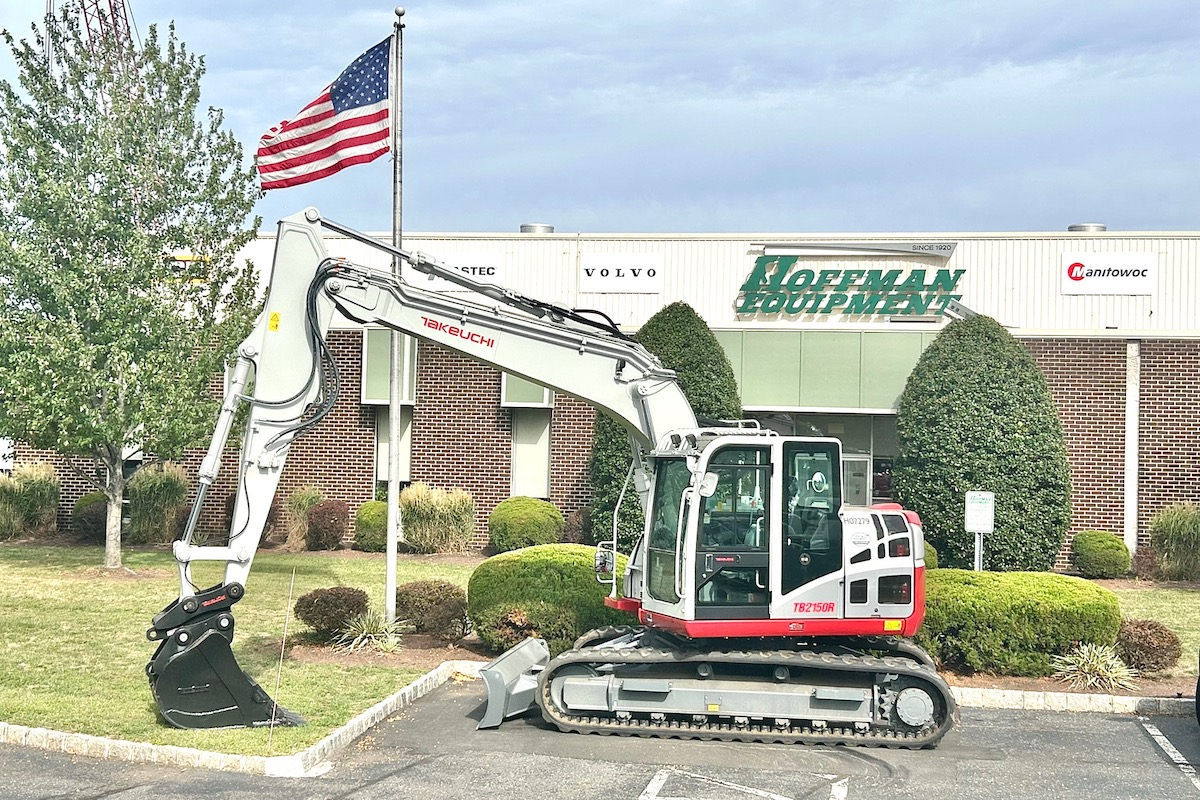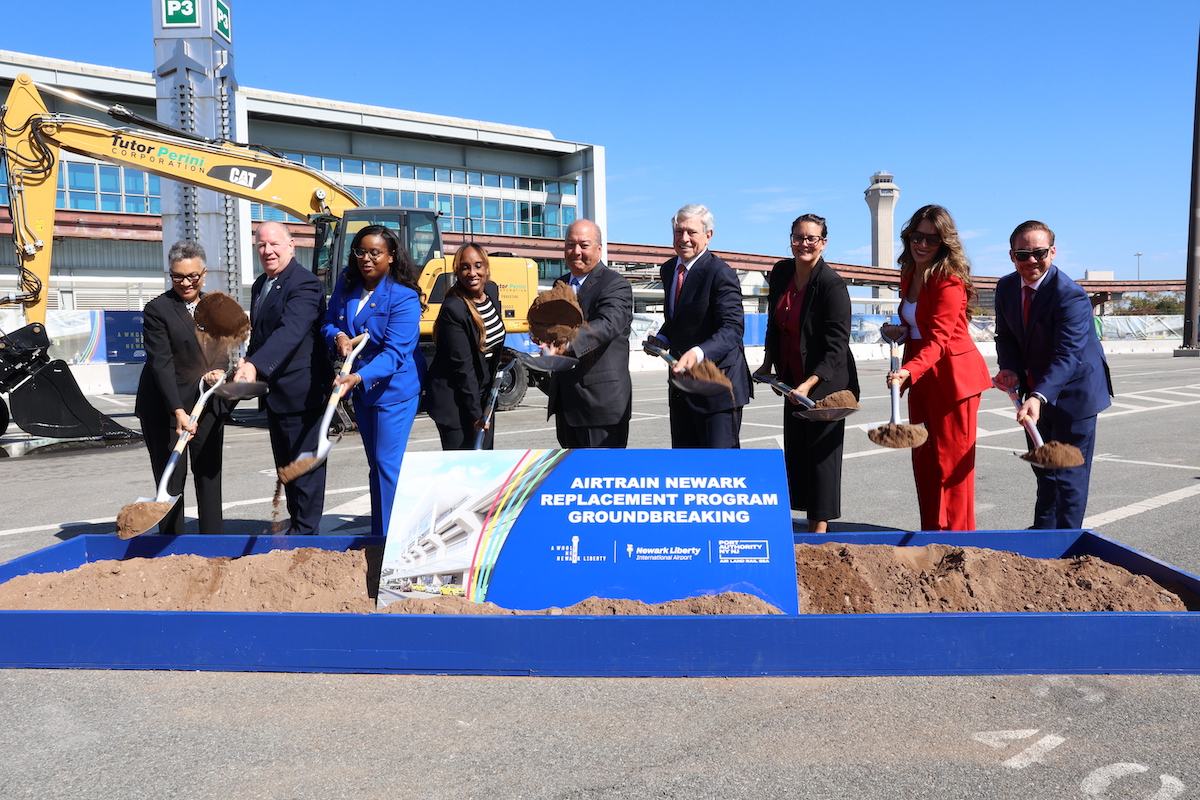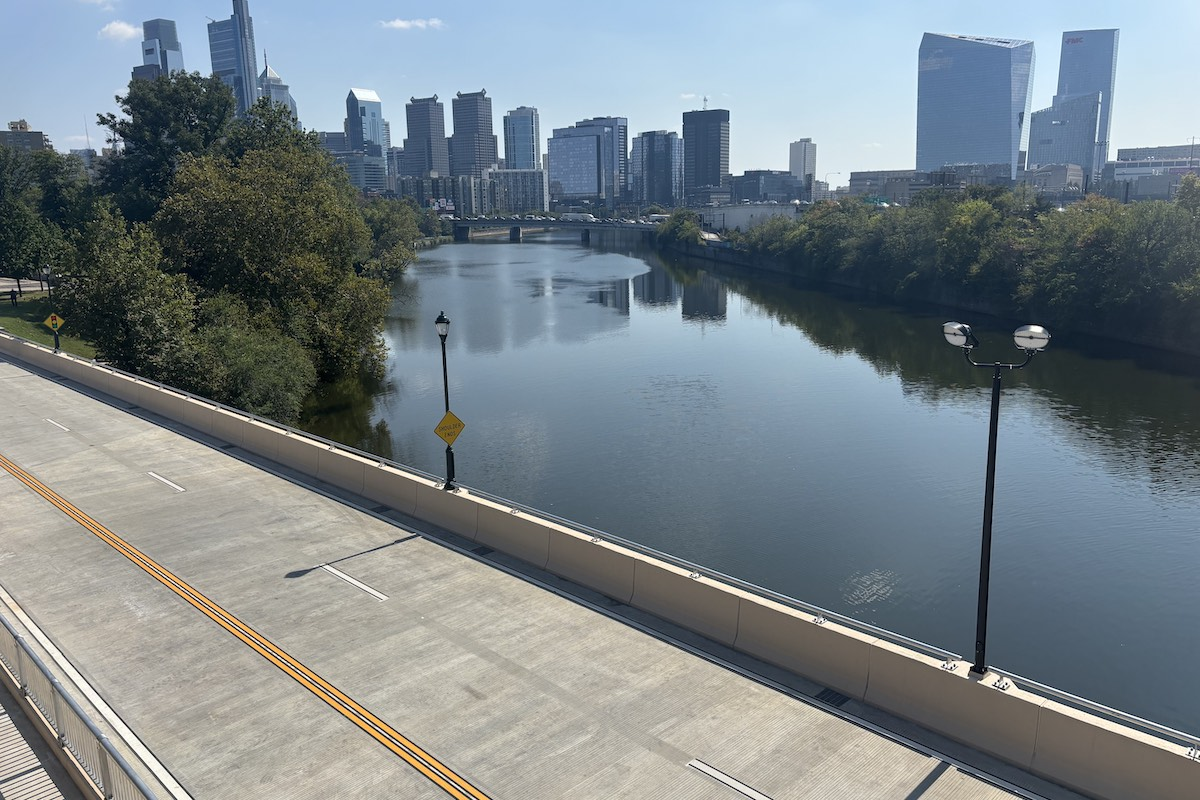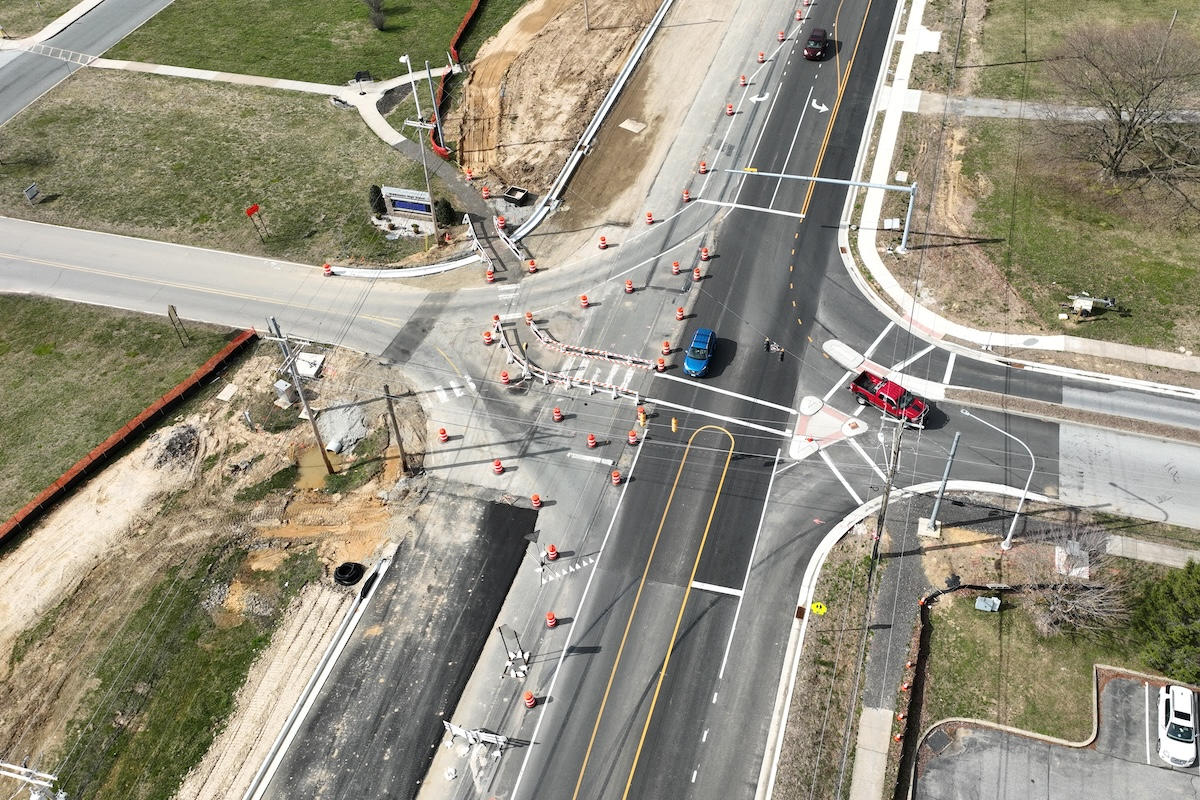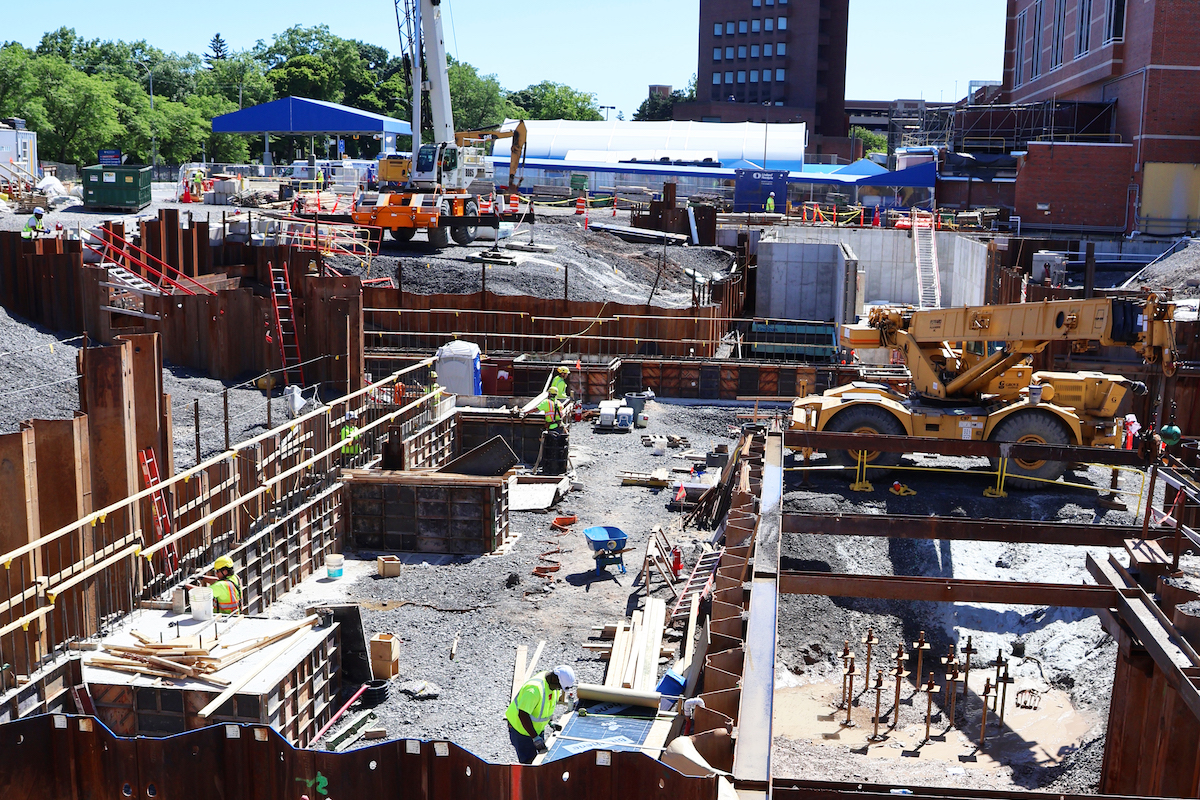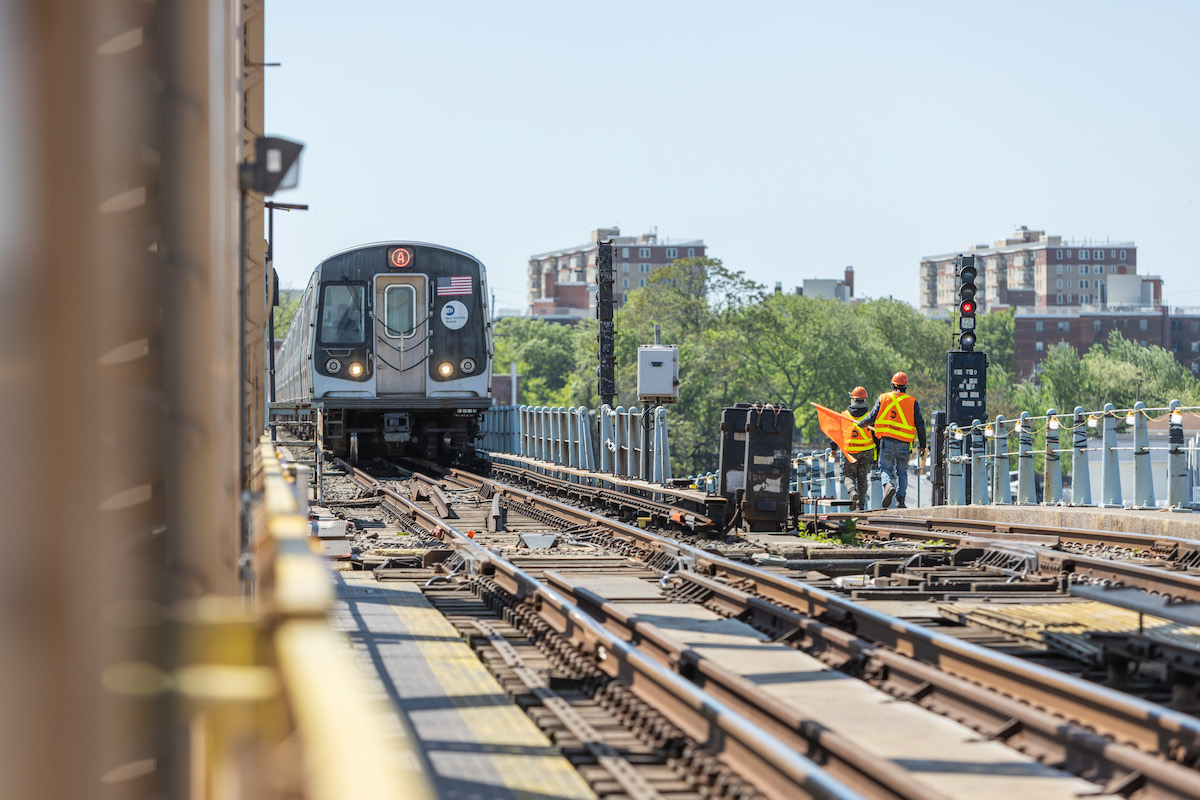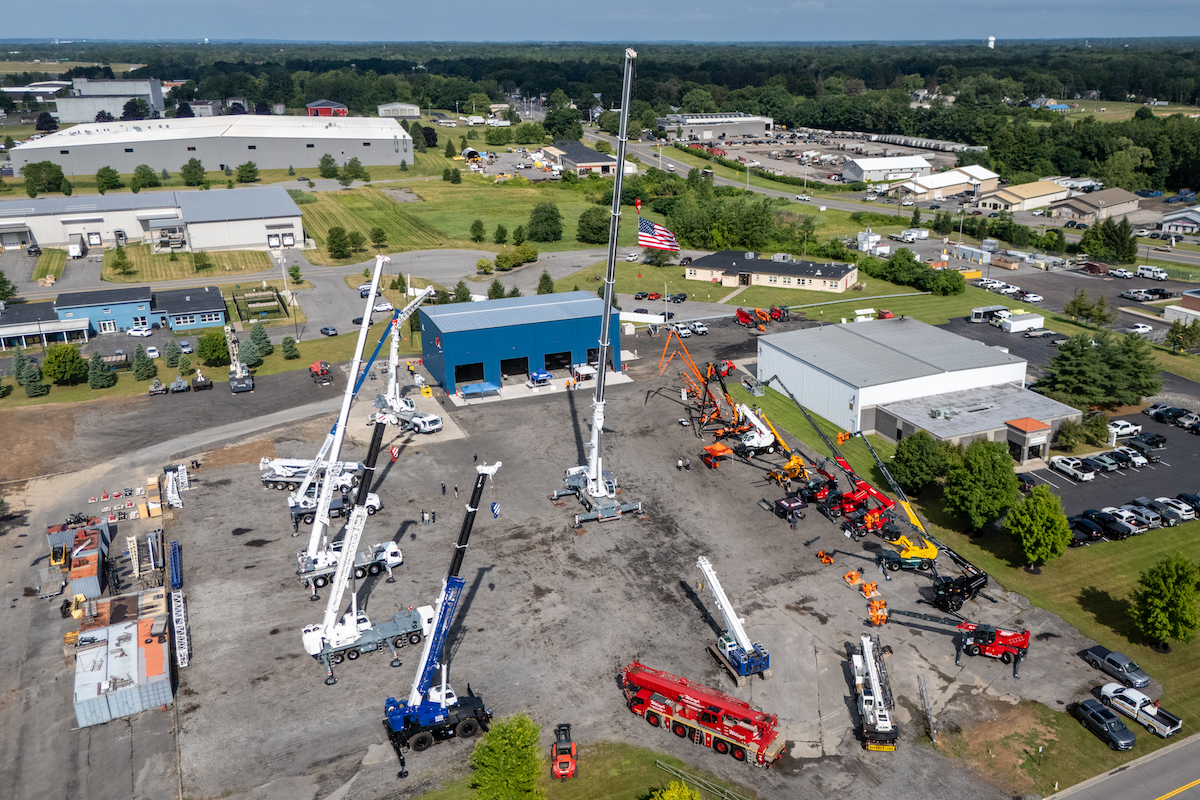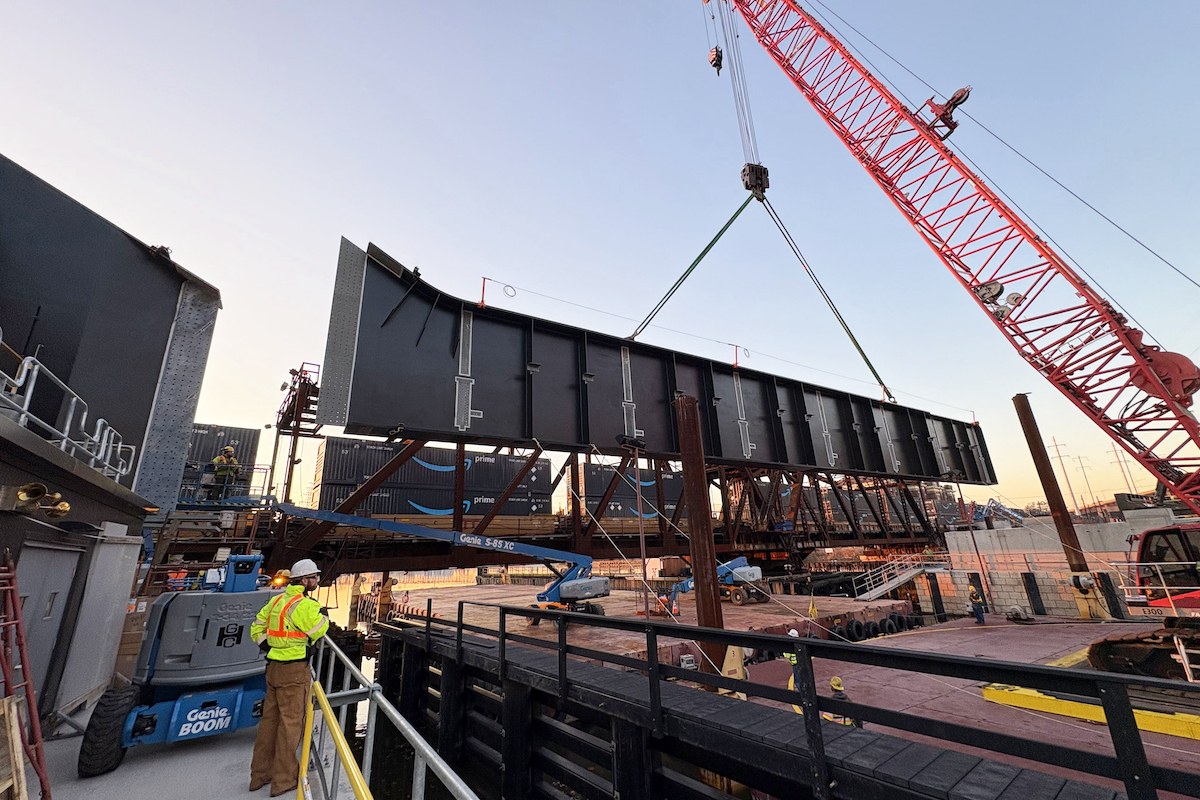The WisDOT Bureau of Structures and Southwest region maintenance staff do routine inspections of infrastructure. They noted the need for the U.S. 14 bridges to updated.
Specifically, the project will touch six bridges that stretch over 6 miles of U.S. 14, a four-lane highway through 95 percent of the project area. Although the bridges were not deemed unsafe, it was determined that they needed maintenance and repair to extend their service life.
The level of repair needed on the bridges varies. Two of the bridges will have concrete overlays, three will have deck replacements and one will be completely replaced. In addition to the bridgework, WisDOT will install a cable guard rail for 1.7 miles of the route. The guard rail is in the median and serves as a barrier to prevent crossover crashes.
“Traffic control and rerouting traffic has been a challenge,” says Marc Schweiger, who is serving as the Project Manager for WisDOT.

| Your local Trimble Construction Division dealer |
|---|
| SITECH Allegheny |
| SITECH Northeast |
Schweiger notes that when one of the bridges was closed, people were doing turnarounds at the project limits. “At first, they didn’t know the alternate route as they were getting used to a new pattern and then there were some who may have been trying to find shortcuts…We put in additional traffic control measures, including signage and drums to encourage people to avoid this unsafe maneuver. The measures worked.”
Another traffic control issue occurred at the south end of the project. The team was working on a bridge that is over Highway 138. Drivers had to exit U.S. 14. They were directed on to Highway 138. To get back on to U.S. 14, they have to travel through a roundabout.
“We did this to maintain traffic, since the other routes would have led to commuters needing to take a long detour,” Schweiger says. Both roundabouts have truck aprons so there’s ample room for the through truck movements.
Despite the complicated movement, there have been no incidents. Part of that can be attributed to the impact of the pandemic.
“During the COVID-19 pandemic, we have seen a reduction in traffic,” Schweiger says. The team has taken advantage of the decrease in traffic, which has impacted the timing of the project and associated costs.

| Your local Trimble Construction Division dealer |
|---|
| SITECH Allegheny |
| SITECH Northeast |
The construction budget for the project is $6.7 million, and it is currently on budget. Lower costs were incurred due to the lack of traffic. The original plans called for a lane closure, and the contractor setting up drums in the morning and taking them down prior to the evening rush hour. This was to be done daily. “When we discovered less traffic, we let the contractor keep the drums up for extended periods,” Schweiger says, “so traffic mobilization costs were less than projected.”
Plans also called for two pieces of equipment to be used for traffic control. The dynamic late merge system makes use of multiple message boards. They flash information to drivers telling them when to merge. “The goal is to get commuters to use both lanes up to a specified point, and then use a zipper merge at the point we want them to merge,” Schweiger says. “This helps traffic flow better.”
Similarly, the second piece of equipment – a portable automated real-time traffic queue warning system –makes use of sensors that are constantly monitoring the traffic to determine if a queue is forming. If so, it alerts the traveling public up or down the road. The purpose of the system is to reduce fender benders and encourage drivers to consider alternate routes.
“Because of the lower traffic during the first year of the project, we didn’t use either of the systems,” Schweiger says, “but we have them in place this year in case we need them.”
The project began in March 2020 and shut down in August. The project was designed to shut down early in the season as the designers determined that the work to be completed at that point made for a natural stopping point. According to Schweiger, the team considered moving some work from 2021 to 2020, but the contractor and state could not come to an agreement.

| Your local Trimble Construction Division dealer |
|---|
| SITECH Allegheny |
| SITECH Northeast |
The decrease in traffic had a few ripple effects. The contractor worked longer hours. Lane closures were able to remain for a longer timeframe allowing the contractor and traveling public experienced a safer and more consistent traffic control set-up. Finally, the contractor and project staff access to and from the project site was easier with the decreased traffic.
Construction is scheduled to be complete in November, and Schweiger anticipates the team will meet that deadline. He credits good communication among the key members of the team, including the contractor Zenith Tech Inc., as a reason for the on-time project. Zenith Tech Inc., which was selected via a low bid selection process, is a big company in the area and has worked on past WisDOT projects.
While the project was occurring, WisDOT added another element to the original plan. They recognized a ramp in the area was in poor condition. “Because the contractor was already there and the public had adjusted to the alternate routes, it was determined we would fix the ramp then,” Schweiger says. “It was more cost-effective this way as the contractor was already on-site, and we were able to take the money from our change order budget.”
When the project is complete, Madison area commuters will be able to access six bridges that have a renewed life span and are more reliable. In addition, WisDOT will need to put in less maintenance on the updated bridges allowing them to spend on other infrastructure needs. Commuting to the thriving city of Madison will be easier.






